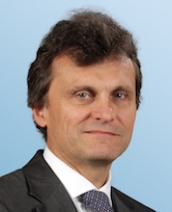Rick Eagar
Partner Emeritus
Rick advises large companies and public organizations on innovation, R&D and technology management, including strategy, organization and performance improvement.

Areas of Focus
Education
Past Experience

Rick is Partner Emeritus at Arthur D. Little and Chairman of the editorial board of ADL’s management journal, PRISM
Rick has over 28 years of consulting experience in technology and innovation management, R&D strategy and organization, and 10 years of industrial experience in capital projects. His sector focus included transport, oil & gas, energy, chemicals, food & drink, nuclear, government, and consumer goods.
Examples of his work included R&D, organizational and process redesign, transformation of national research institutes, new growth strategies, innovation strategies, technology strategies, and benchmarking.
Before becoming Partner Emeritus, Rick was Chief Innovation Officer and Global Leader of the Technology & Innovation Management Practice, responsible for the firm’s functional expertise in innovation, R&D, and technology management.
Rick published on innovation and R&D management and is a regular speaker at international conferences.
He speaks fluent Dutch in addition to his native English.


Shaking up Middle Eastern banking

Adapting to an uncertain future

Rick is Partner Emeritus at Arthur D. Little and Chairman of the editorial board of ADL’s management journal, PRISM
Rick has over 28 years of consulting experience in technology and innovation management, R&D strategy and organization, and 10 years of industrial experience in capital projects. His sector focus included transport, oil & gas, energy, chemicals, food & drink, nuclear, government, and consumer goods.
Examples of his work included R&D, organizational and process redesign, transformation of national research institutes, new growth strategies, innovation strategies, technology strategies, and benchmarking.
Before becoming Partner Emeritus, Rick was Chief Innovation Officer and Global Leader of the Technology & Innovation Management Practice, responsible for the firm’s functional expertise in innovation, R&D, and technology management.
Rick published on innovation and R&D management and is a regular speaker at international conferences.
He speaks fluent Dutch in addition to his native English.


Shaking up Middle Eastern banking

Adapting to an uncertain future
More About Rick
- University of BristolBSc (Hons), Mechanical Engineering
- Shell International Petroleum CompanyProject Manager, Head of Planning and Cost Engineering Netherlands (N.A.M) / Oman (Petroleum Dev Oman)
